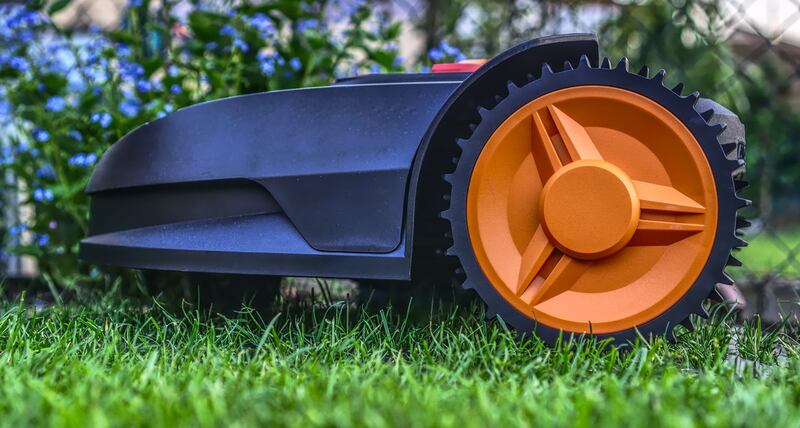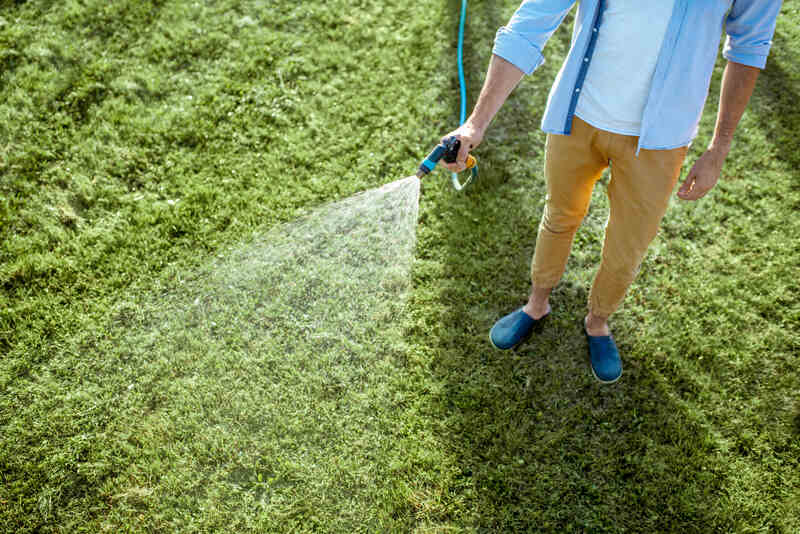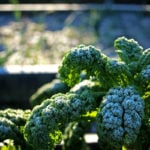
In Portland, your unicycling neighbor may have choices in transportation and lifestyle that differ from you, but no one chooses to have a brown or patchy lawn. Fortunately, we have summer lawn care tips to keep your Portland yard green.
1. Mow Properly

Whichever of the best grass types for Portland you have in your yard, lawn tips for the summer heat can be helpful. For example, don’t remove more than one-third of your grass at a time. If your grass is about 3 inches high, then you would need to cut it only about 1 inch.
If you cut grass blades by more than one-third, it will weaken your lawn. When your lawn is weakened, it becomes more vulnerable to disease and weeds.
2 inches is the perfect height for most grass types. By mowing every other week or so in the summer and leaving the clippings lay on your lawn, your grass will be resupplied with much-needed nitrogen.
2. Use Sharp Blades
Another tip is to keep the blades of your lawn mower sharp. A sharp mower cuts a clean lawn.
If you don’t have sharp blades, your grass will rip and tear. As a result, your lawn will become unhealthy and that leads to more weeds and pests.
See Related:
— How to Sharpen Lawn Mower Blades
— How Often Should You Sharpen Your Lawn Mower Blades?
3. Water the Right Amount

Another consideration in the summer is how much to water your lawn, but note that overwatering is worse than under-watering.
If you are concerned about how your lawn needs to be watered, take a 6-inch screwdriver and push it into the dirt. If it slides in easily, then you don’t need to water. But if it’s hard to push in, then go ahead and hydrate your lawn.
The recommendation used to be about 1 inch of water per week, but experts now say you shouldn’t pour more than 2/10th of an inch of water at one time. If you apply more than that, then the water either drains off or drains through.
If the summer heat is intense, then begin with 1/10 of an inch five days a week, and, if you do 2/10th of an inch, then water three times a week.
How to measure the length of time if takes to reach that amount? You can use a rain gauge, a plastic cup or a tuna cup to measure how much water is being used.
4. Fertilize and Reseed
Over-fertilizing will weaken your lawn because it grows the grass but not the roots. This will also cause weeds to run rampant in your yard, causing a whole other issue. It’s best to fertilize only in the spring and fall.
For reseeding, you can do it by filling in holes and ugly brown spots. Just make sure you pour enough water so the seed is pushed into the soil.
Another option in the summer is allowing your lawn to go dormant. It will turn brown, but when it rains again, the grass will grow and recover green. If you don’t like seeing a brown lawn, then plant drought-tolerant grass, like buffalograss, and pour an inch of water once a week.
See Related:
— When to Fertilize Your Lawn
— How to Fix an Overfertilized Lawn
5. Use Resilient Grass
If you have shady areas where nothing grows, the newest breed of grass seed known as micro clover is an option. It’s a dwarf clover with a dainty appearance and can be mixed with grasses.
Knowing what to expect of your grass in the summer is the first step to a healthy lawn.
See Related:
— 8 Reasons to Grow a Clover Lawn
— Lawn Care Calendar for the Pacific Northwest
Knowing what to expect of your grass in the summer is the first step to a healthy lawn.
Read More:
— Fall Lawn Care Tips for Portland
— Spring Lawn Care Tips for Portland
— Best Grass Types for Portland, Oregon, Yards
— 12 Low-Maintenance Landscaping Ideas for Portland, Oregon
— Month-to-Month Lawn Care Calendar for the Pacific Northwest
Need help preparing your lawn for summer? Visit our Portland lawn care page to get in touch with a professional! In addition to Portland, we provide lawn care services in Northwest cities including Seattle and Spokane.
Main Image Credit: Ian Poellet / Wikimedia Commons / CC BY-SA 3.0





